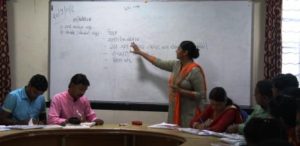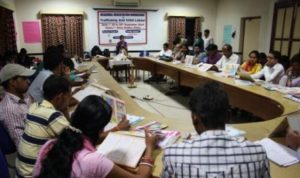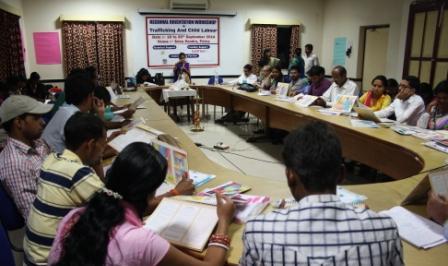India is a humongous country, beset with hundreds of problems. It’s difficult for the government to give everything top priority, but issues around the rights of children and young people just cannot be ignored. And three issues that are interlinked in the impoverished hinterland of states like Bihar are unsafe migration of kids and young women, illegal marriages of minors, and child servitude.
Human trafficking, Child Labour, and Child Marriages were the main topics of discussion at a regional orientation programme for outreach workers organised by Cartias Switzerland in collaboration with the Bihar wing of ATSEC: the anti-trafficking network.

For three days (September 18-20) some 60 people, mainly young people who have been recruited to ensure that village communities in North Bihar wake up and protect their children, by forming Child Protection Committees were oriented by experts on ways and means to get on with their jobs.
The experts shared their experiences and strategies, while the field staff shared the challenges that arose from their areas.
On the one hand, we have several laws and rules in India that give protection to children such as the Juvenile Justice Act, the Prevention of Sexual Offences against Children Act, the Immoral Traffic Prevention Act, the Child Marriage Act, and so on. But on the other hand, the general public are not aware of these acts, and even the policemen in the village police stations do not really know much about the laws and procedures to tackle cases involving children. Because of ignorance, the village people, especially the weaker sections, do not approach the police for justice. When the children of the poor go missing, it does not make news.
The proper implementation of the right to education with quality schooling, diligent application of the welfare schemes for the poor, and monitoring at village level to track migration of families and young persons can help prevent children and young people from falling prey to traffickers.
Caritas Switzerland and its implementation partners in Bihar are attempting to make villages safer places for children. This can be achieved with strong Panchayat Child Protection Committees. At the end of the three day orientation, the youthful field workers radiated greater confidence and determination, and promised to ensure results to the best of their capability.


